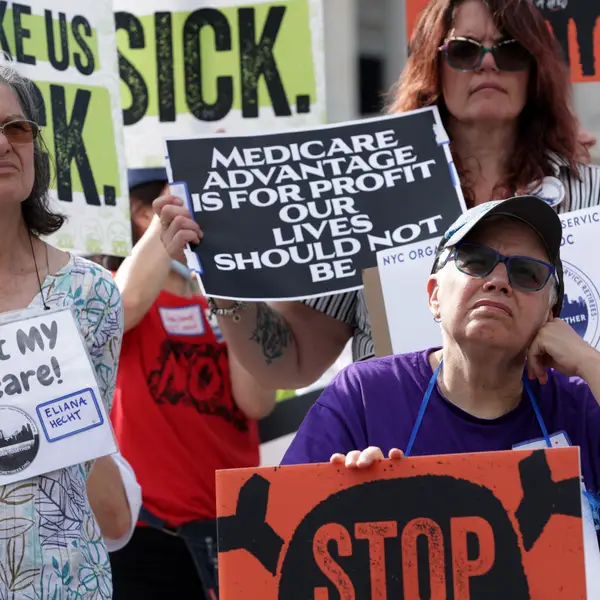Medicare Part B recipients will soon be hit with one of the biggest premium increases in the history of the government program, a hike driven in large part by the Food and Drug Administration's scandalous approval of a costly--and, according to many experts, dubious--Alzheimer's drug.
"Medicare's inability to negotiate lower drug prices means that Big Pharma companies can charge whatever they want."
Last week, the Centers for Medicare and Medicaid Services (CMS) announced that monthly Medicare Part B premiums will be raised to $170.10 in 2022, up from this year's level of $148.50.
While CMS officials cited several factors in their explanation of the premium boost--including costs imposed by the coronavirus pandemic--they attributed roughly half of the increase to "additional contingency reserves due to the uncertainty regarding the potential use of the Alzheimer's drug, Aduhelm(tm), by people with Medicare."
Medicare is currently in the process of deciding whether to cover the drug, which is priced at a staggering $56,000 per year.
A June analysis by the Kaiser Family Foundation estimated that if 500,000 Medicare recipients are prescribed Aduhelm, total spending on the drug in a single year would be close to $29 billion--"an amount that far exceeds spending on any other drug covered under Medicare Part B or Part D, based on 2019 spending."
CMS said Friday that "we must plan for the possibility of coverage for this high-cost Alzheimer's drug which could, if covered, result in significantly higher expenditures for the Medicare program."
The FDA's accelerated approval of Biogen's Aduhelm--also known as aducanumab--sparked outrage among public health experts and prompted the resignations of several agency advisers, who said there was not enough evidence showing the drug actually works to slow Alzheimer's-induced cognitive decline.
On top of concerns about the treatment's lack of effectiveness as well as potentially unlawful coordination between the FDA and Biogen throughout the approval process, advocacy groups warned the decision to greenlight the exorbitantly priced drug "threatens to bankrupt the Medicare program."
Dr. Michael Carome, director of Public Citizen's Health Research Group and one of the most outspoken critics of the FDA's handling of Aduhelm, said in a statement Monday that "all Part B Medicare beneficiaries soon will be forced to bear significant financial burden as a direct result of the FDA's reckless decision to approve aducanumab, a drug that has not been proven to provide any clinically meaningful benefit to Alzheimer's patients but nevertheless carries an indefensible annual price tag set by Biogen at $56,000 per year."
"To protect the many Medicare beneficiaries who cannot afford the unacceptable 15% jump in Part B premiums," Carome added, "CMS must promptly announce that it will exclude aducanumab from coverage under the Medicare program until there is definitive evidence that the drug provides substantial evidence of cognitive benefit to Alzheimer's disease patients."
Related Content
As Big Pharma Stock Soars, Third FDA Adviser Resigns Over Approval of Alzheimer's Drug
Andrea Germanos
In a column on Monday, Michael Hiltzik of the Los Angeles Times argued that the Aduhelm case is "a perfect illustration of how the government's self-imposed powerlessness to control drug companies' greed combines with the general dysfunction of the American healthcare system to hit consumers where it hurts the most, in the pocketbook."
"Plainly," Hiltzik wrote, "no one in America can escape the burden of unregulated pricing by drug companies, even for a product of doubtful efficacy and even for consumers who aren't taking the drug in question."
Social Security Works, a progressive advocacy group, pointed to the newly announced Medicare premium hike as further evidence for the need to allow the federal government to negotiate prescription drug prices directly with pharmaceutical companies--one of the most popular proposals in Democrats' Build Back Better reconciliation package.
"Medicare's inability to negotiate lower drug prices means that Big Pharma companies can charge whatever they want--and seniors are paying the price," the group tweeted Monday. "Congress must pass Build Back Better and give Medicare the power to take on pharma's greed."





